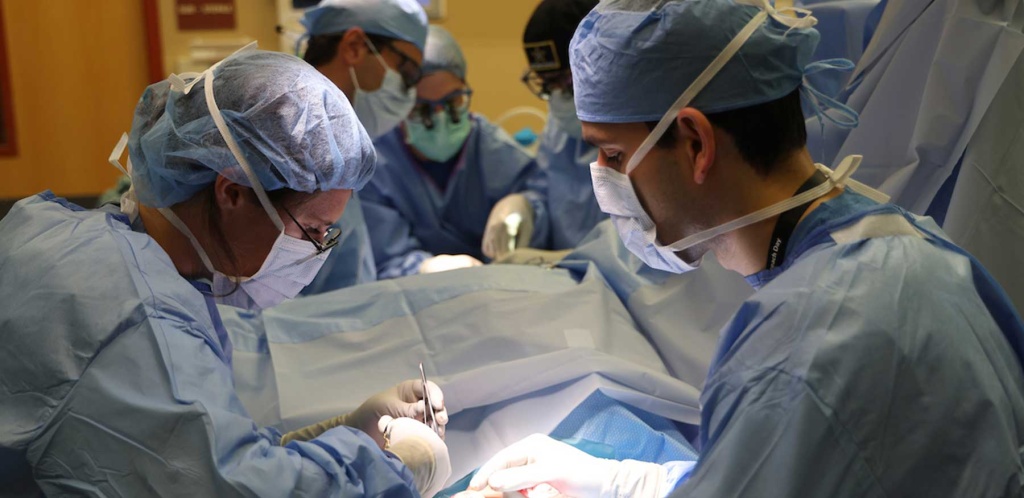Diversity
Medical Students Program
In the summer of 2022, the Department of Orthopaedics launched a medical student research program. This eight-week program provided first- or second-year medical students an immersive look into the field of orthopedic surgery. Students were paired with faculty mentors to conduct clinical or translational research projects and gain focused career mentorship. These research endeavors were complemented by a weekly research seminar series, hands-on sawbones labs, morning resident conferences, hands-on casting workshops and social events. At program’s end, students presented their work at a scientific symposium.
Forty medical students from 24 institutions across the United States and Puerto Rico applied to the program. Following a multistep application and interview process, five applicants were selected. The inaugural class included one female and one underrepresented minority student.

Student perceptions about the program and their career interests in orthopedics and research were assessed prior to the program, at the midpoint (week 4), and at completion.
Surveyed on their interest in orthopedics (1-10 rating scale, 1 = very low and 10 = very high), prior to the program the median response was 8 (range: 7-10); midpoint median response was 10 (range 9-10); and endpoint median response was 10 (range: 8-10).
- When surveyed on their interest in including research as part of their future career, prior to the program the median response was 5 (range: 3-7); midpoint median response was 8 (range 7-9); and endpoint median response was 9 (range: 8-10).
- When asked at the endpoint if they would reapply to the program, the median response was 10 (range: 10-10), indicating a high level of student satisfaction with the inaugural program.
Students’ statements indicated that they:
- “Enjoyed the comprehensive design of the program, which allowed for research training and an in-depth exposure to orthopedics and subspecialties in the field.”
- Found “the clinical aspect of this program a highlight of the program and what I think set it apart from a lot of other summer orthopedic programs around the country.”
- “Significantly improved my research skills, scientific writing, and clinical and surgical skills. I also appreciated that the program lent itself to me interacting with attendings and residents alike. Through my experiences with them, I established new collaborations and acquired new mentors.”
A comprehensive research and clinical exposure program in orthopedic surgery can help develop the next generation of surgeons and surgeon-scientists. Survey results lead us to conclude that students were highly satisfied with program. We plan to continue it, and longitudinally track the career trajectory of participants.
